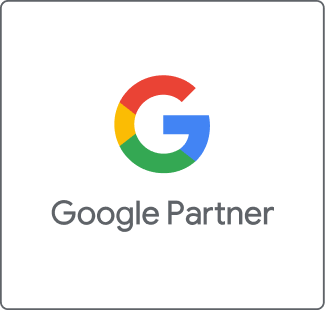Most marketing campaigns incorporate multiple channels, all of which work together to funnel your audience deeper into the sales lifecycle. Each campaign is different, but the marketing channels are well known and well used: email, social media, digital advertising, search engine marketing, and many others.
However, your marketing strategy shouldn’t always focus completely on your campaigns and marketing channels. Search engine optimization (SEO), in particular, can help increase the effectiveness of your marketing in the long-term.
There are many myths and misconceptions that every marketer needs to know about before they begin their foray into SEO.
[hr style=”3″ margin=”40px 0px 40px 0px”]
1. Meta Tags
Digital marketers from ages past probably already know what a meta tag is, but for those who don’t:
Meta tags were once part of the larger search algorithm that many search engines used when delivering relevant results for search queries. However, they can still be used to specify page description, keywords, and other metadata.
Once upon a time, these meta keyword tags were an important part of the SEO process. In the past, marketers would include the keywords they wanted their site to rank for, and the page would come up in the queries surrounding those keywords. It was that simple. But, like most internet search tools, it was quickly spammed to death, and then eventually dropped by the major search engines as a significant ranking signal.
Meta tags no longer have a significant impact on SEO, and there are better ways to spend your time and budget.
[hr style=”3″ margin=”40px 0px 40px 0px”]
2. Paid Search and Organic Results
One of the biggest misconceptions surrounding search is that spending money on search engine marketing improves your organic SEO rankings.
That is FALSE!
Google, Yahoo!, and Bing are all very effective in preventing precisely this type of crossover. So long as the existing barriers are in place, this theory will remain a myth.
SEO campaigns generate organic traffic, meaning the goal is to improve website ranking for relevant keywords. Without focusing some of your efforts on SEO, you probably wouldn’t be able to show up in the first page of organic search results. On the other hand, paid search campaigns generate paid traffic. The goal of a paid campaign is to increase the visibility of and traffic to your website by showing up in the paid search results.
[testimonial author=”Matt Cutts, Google”]We want to return really good search results to users . . . we aren’t going to make an algorithmic change to make people buy ads. If you buy ads, it’s not going to algorithmically help or hurt your ranking.[/testimonial]
[hr style=”3″ margin=”40px 0px 40px 0px”]
3. Keyword Stuffing
This is one of the most frustrating myths surrounding SEO. You have probably seen those pages that just look spammy. There are probably multiple sentences all based around one or two short keywords and then one long-tail keyword. You read it and immediately roll your eyes and probably even sigh loudly.
That is the correct reaction because that is what your audience is doing.
This persistent myth in SEO revolves around the concept that keyword density – a mathematical formula that divides the number of words on a page by the number of times a given keyword is used – is used in ranking calculations. Despite being proven untrue time and time again, many SEO tools still feed on the concept that keyword density is important to site ranking.
You should be using your keywords intelligently and, instead of spamming the world, creating good content instead. It’s fine to throw in a keyword, or even build blog posts around keywords that you know your audience is searching. But the most important thing is that you are creating good content that people can link to and drive organic traffic.
Instead of continuously throwing keywords in to increase your site ranking, you should be writing content that earns good editorial links.
[hr style=”3″ margin=”40px 0px 40px 0px”]
4. Social media and SEO
This rumor has been popular for a while, so you have probably seen articles that argue that social media drives SEO. There are many reasons your business should be using social media, and you’re missing out if you don’t have a social media strategy. But that doesn’t mean your social media engagement will drive rankings in search results.
You should pursue social media as a way to build your own visibility online. Social media provides an opportunity to engage your target audience and build brand awareness. But it does not help your SEO efforts. Unfortunately, Google has repeatedly denied using social media as a ranking factor, and even Bing has abandoned the personalization aspects of social media.
You won’t increase your search rankings by having an engaged audience on social media, but it can help you accomplish your overarching marketing goals.
[hr style=”3″ margin=”40px 0px 40px 0px”]
5. Guest Posting
Back in January, Matt Cutts published a blog post titled “The decay and fall of guest blogging for SEO”. In the post, he detailed many ways that people have been abused by those pursuing guest posts to obtain links to their site. Despite his negativity, there is a difference between good and bad guest blogging.
Bad guest posts on your blog are spammy, and they are a clear violation of Google’s quality guidelines. Moreover, many bad guest posts equate to “paying for PageRank” or “we’ll insert some spammy links on your blog without you realizing it”. More often than not, they equate to someone else gaining at your expense.
However, that doesn’t mean that all guest posts are inherently bad. There are plenty of blogs and sites which do guest posting correctly. Forbes and TechCrunch are great examples of how guest posting can be effective. But you have to keep your head in the right place when it comes to guest blogging. When you are pursuing guest blogging, make reputation and visibility the most important goals, not SEO.
SEO impact is a side effect, rather than the main goal, of guest blogging.
Search engine optimization is an important part of any company’s long-term marketing goals. But as a marketer, you have to be mindful about the myths and misconceptions surrounding the many highly technical advances in the field. You may not be an SEO expert, but knowing what works will help you build an effective search strategy.
[visibility show=”desktop”]
 [/two_fifth][three_fifth_last]
[/two_fifth][three_fifth_last]
Need help with your SEO?
Contact us to schedule your consultation.
[/three_fifth_last]
[/visibility]
[visibility show=”tablet”]

Need help with your SEO?
Contact us to schedule your consultation.
[acf field=”cta_15″ post_id=”option”]
[/visibility]
[visibility show=”mobile-landscape”]

Need help with your SEO?
Contact us to schedule your consultation.
[acf field=”cta_15″ post_id=”option”]
[/visibility]
[visibility show=”mobile-portrait”]

Need help with your SEO?
Contact us to schedule your consultation.
[acf field=”cta_15″ post_id=”option”]
[/visibility]



